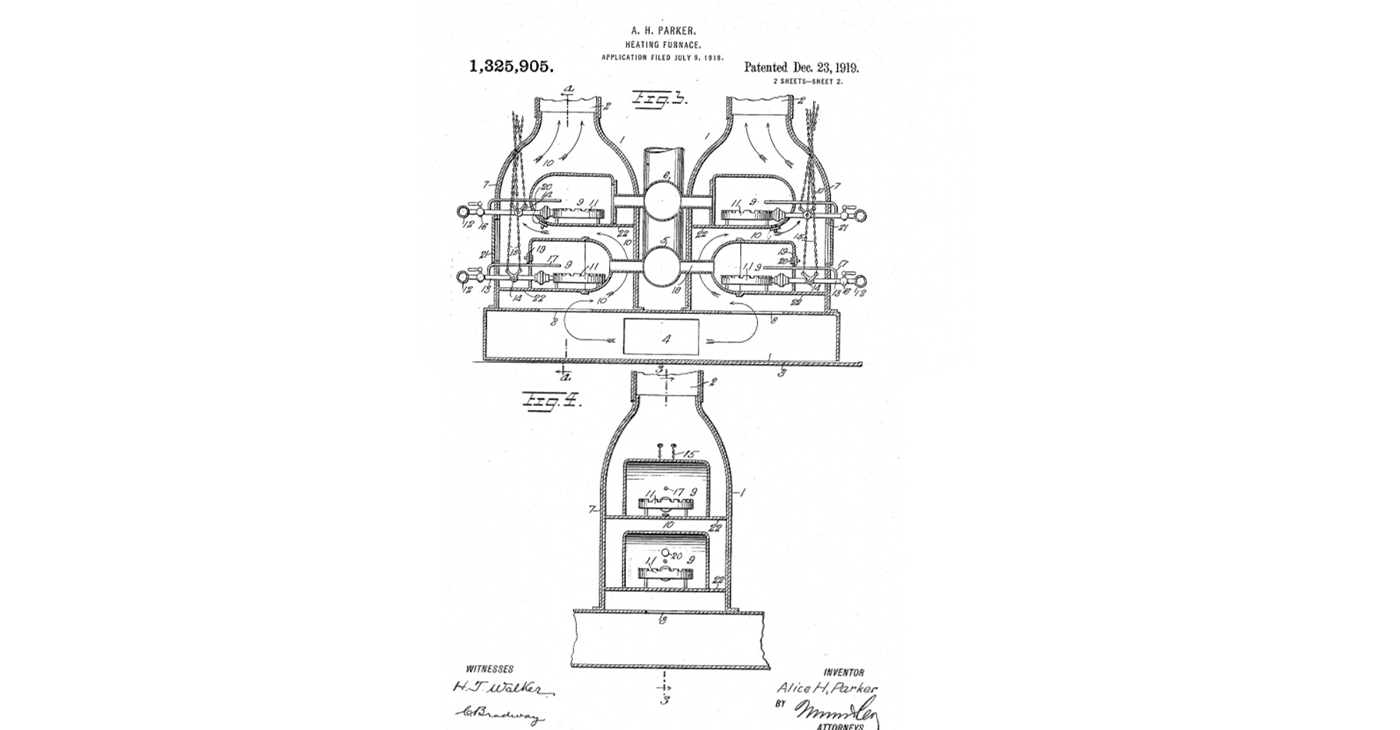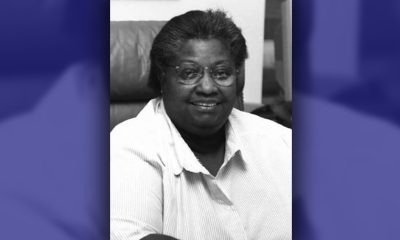National
Life of Black Man Displayed in Zoo Matters Too

Pamela Newkirk, journalist and author of the book said that, “For more than a hundred years, the story of Ota Benga was told by the same people who exploited him, and that narrative has stuck all of this time.” (Courtesy Photo)
By Jazelle Hunt
NNPA Washington Correspondent
WASHINGTON (NNPA) – An ordinary Internet search on Ota Benga yields black-and-white photos of a petite Black man, almost naked, smiling with a row of spiky teeth. Some accounts say he achieved fame in the early 1900s as part of controversial human zoo exhibitions in the United States.
But a look below the surface reveals a true tale of extreme racism, cruelty, and widespread collusion in the kidnapping and dehumanization of a man.
This is the meat of Spectacle: The Astonishing Life of Ota Benga, a shocking historical biography of Benga’s experience as a museum attraction – most notably as “the pygmy at the [Bronx] Zoo,” on display in an enclosure with an orangutan in 1906. Benga was later relocated to Lynchburg, Va, where he committed suicide.
Due on book stands in June, the historical biography retraces Benga’s journey using primary sources such as published articles, museum archives, and first-person writings from Samuel Phillips Verner, the man who abducted Benga and brought him across the Atlantic.
“So much of what I read in the archives was so chilling,” says Pamela Newkirk, journalist and author of the book. “And I guess the thing that surprised me to was the extent to which the statements of elite men and institutions go unquestioned. For more than a hundred years, the story of Ota Benga was told by the same people who exploited him, and that narrative has stuck all of this time.”
Currently, Ota Benga: The Pygmy in the Zoo, published in 1993, is the book of record for learning more about Benga’s life and death. It tells the story of Verner’s exploits as a missionary in the Congo, his fascination with the racist scientific theories of the day, and his guilt over his treatment of Benga, all culminating in a tenuous friendship between Benga and Verner. This book’s co-author is Verner’s grandson, who died in 2013.
As Newkirk gathered primary sources, she was surprised to find so many news articles, scholarly studies, and first-person accounts, written in real-time as Benga’s life unfolded. And despite clear evidence, some academics were reluctant to have the narrative disturbed.
“There were some institutions that were not as forthcoming as one would hope,” she says. “But I did find a lot more than I ever thought I would. Even if one institution had withheld information, there was a lot more, so I wasn’t overly reliant on one place.”
In reading, she began to understand why some sources seemed so guarded.
“One of the main things I found is that he was hunted, like one would hunt an animal,” Newkirk says, referencing an article Verner had written about his method for capturing the people derogatorily called pygmies. “He was in no way complicit in his exhibition, and he resisted being there. Stories have been told as if he was a happy subject of that degradation.”
According to Newkirk’s research, scientists and anthropology pioneers were among the first and loudest to defend and justify Benga’s confinement. Newkirk explains that the theme of the Louisiana Purchase Exhibition in 1904 – also known as the St. Louis World’s Fair, the first place Benga was held captive – was human advancement. Many indigenous people from around the world were kidnapped or coerced into performing in exhibits depicting man’s progress from “savage” settlements to the “civilized” White Western world.
“It was all predicated on notions of science and anthropology. When The New York Times defended the [Bronx Zoo] exhibition, they defended it in the name of science,” she explains. “There were questions of whether or not he was human, whether he was The Missing Link. It was the most eminent men of New York City who defended and supported this exhibition.”
Newkirk, who is also the director of undergraduate studies at New York University, where she teaches about media representation of marginalized groups, draws parallels between the racist beliefs that enabled what happened to Benga, and today’s racial climate.
She says, “The refrain of ‘Black lives matter’ rings in your ear when you see what people are capable of doing. They said that the African is so close to the ape…. When you look at what was considered ‘educated’ and ‘modern’ and ‘advanced,’ those were the views that were considered progressive in that period.
“This is so deeply rooted in American society – this idea that Black people…are animals. My book is historical…but I leave it to others to see how deeply embedded these ideas are and how they became…the foundation for policy.”
Spectacle: The Astonishing Life of Ota Benga goes on sale June 2. Pre-orders are available now through Amazon and Barnes & Noble.
Newkirk hopes that her book is instrumental in correcting the historical record of Benga’s life in the United States.
“The most important thing for me is to correct the historical record. It’s just such an insult that the man who’s most responsible for exploiting him has been depicted as his friend and savior for a hundred years,” she says.
“[Benga’s] life was worthy of this kind of exploration, because Black lives do matter. I think we owe that to Ota Benga.”
###
Arts and Culture
In ‘Affrilachia: Testimonies,’ Puts Blacks in Appalacia on the Map

By Terri Schlichenmeyer
The Bookworm Sez
An average oak tree is bigger around than two people together can reach.
That mighty tree starts out with an acorn the size of a nickel, ultimately growing to some 80 feet tall, with a canopy of a hundred feet or more across.
And like the new book, “Affrilachia” by Chris Aluka Berry (with Kelly Elaine Navies and Maia A. Surdam), its roots spread wide and wider.
Affriclachia is a term a Kentucky poet coined in the 1990s referring to the Black communities in Appalachia who are similarly referred to as Affrilachians.
In 2016, “on a foggy Sunday morning in March,” Berry visited Affrilachia for the first time by going the Mount Zion AME Zion Church in Cullowhee, North Carolina. The congregation was tiny; just a handful of people were there that day, but a pair of siblings stood out to him.
According to Berry, Ann Rogers and Mae Louise Allen lived on opposite sides of town, and neither had a driver’s license. He surmised that church was the only time the elderly sisters were together then, but their devotion to one another was clear.
As the service ended, he asked Allen if he could visit her. Was she willing to talk about her life in the Appalachians, her parents, her town?
She was, and arrangements were made, but before Barry could get back to Cullowhee, he learned that Allen had died. Saddened, he wondered how many stories are lost each day in mountain communities where African Americans have lived for more than a century.
“I couldn’t make photographs of the past,” he says, “but I could document the people and places living now.”
In doing so he also offers photographs that he collected from people he met in ‘Affrilachia,’ in North Carolina, Georgia, Kentucky, and Tennessee, at a rustic “camp” that was likely created by enslaved people, at churches, and in modest houses along highways.
The people he interviewed recalled family tales and community stories of support, hardship, and home.
Says coauthor Navies, “These images shout without making a sound.”
If it’s true what they say about a picture being worth 1,000 words, then “Affrilachia,” as packed with photos as it is, is worth a million.
With that in mind, there’s not a lot of narrative inside this book, just a few poems, a small number of very brief interviews, a handful of memories passed down, and some background stories from author Berry and his co-authors. The tales are interesting but scant.
For most readers, though, that lack of narrative isn’t going to matter much. The photographs are the reason why you’d have this book.
Here are pictures of life as it was 50 years or a century ago: group photos, pictures taken of proud moments, worn pews, and happy children. Some of the modern pictures may make you wonder why they’re included, but they set a tone and tell a tale.
This is the kind of book you’ll take off the shelf, and notice something different every time you do. “Affrilachia” doesn’t contain a lot of words, but it’s a good choice when it’s time to branch out in your reading.
“Affrilachia: Testimonies,” by Chris Aluka Berry with Kelly Elaine Navies and Maia A. Surdam
c.2024, University of Kentucky Press, $50.00.
Black History
Alice Parker: The Innovator Behind the Modern Gas Furnace
Born in Morristown, New Jersey, in 1895, Alice Parker lived during a time when women, especially African American women, faced significant social and systemic barriers. Despite these challenges, her contributions to home heating technology have had a lasting impact.

By Tamara Shiloh
Alice Parker was a trailblazing African American inventor whose innovative ideas forever changed how we heat our homes.
Born in Morristown, New Jersey, in 1895, Parker lived during a time when women, especially African American women, faced significant social and systemic barriers. Despite these challenges, her contributions to home heating technology have had a lasting impact.
Parker grew up in New Jersey, where winters could be brutally cold. Although little is documented about her personal life, her education played a crucial role in shaping her inventive spirit. She attended Howard University, a historically Black university in Washington, D.C., where she may have developed her interest in practical solutions to everyday challenges.
Before Parker’s invention, most homes were heated using wood or coal-burning stoves. These methods were labor-intensive, inefficient, and posed fire hazards. Furthermore, they failed to provide even heating throughout a home, leaving many rooms cold while others were uncomfortably warm.
Parker recognized the inefficiency of these heating methods and imagined a solution that would make homes more comfortable and energy-efficient during winter.
In 1919, she patented her design for a gas-powered central heating system, a groundbreaking invention. Her design used natural gas as a fuel source to distribute heat throughout a building, replacing the need for wood or coal. The system allowed for thermostatic control, enabling homeowners to regulate the temperature in their homes efficiently.
What made her invention particularly innovative was its use of ductwork, which channeled warm air to different parts of the house. This concept is a precursor to the modern central heating systems we use today.
While Parker’s design was never fully developed or mass-produced during her lifetime, her idea laid the groundwork for modern central heating systems. Her invention was ahead of its time and highlighted the potential of natural gas as a cleaner, more efficient alternative to traditional heating methods.
Parker’s patent is remarkable not only for its technical innovation but also because it was granted at a time when African Americans and women faced severe limitations in accessing patent protections and recognition for their work. Her success as an inventor during this period is a testament to her ingenuity and determination.
Parker’s legacy lives on in numerous awards and grants – most noticeably in the annual Alice H. Parker Women Leaders in Innovation Award. That distinction is given out by the New Jersey Chamber of Commerce to celebrate outstanding women innovators in Parker’s home state.
The details of Parker’s later years are as sketchy as the ones about her early life. The specific date of her death, along with the cause, are also largely unknown.
Activism
U.S. House Minority Leader Hakeem Jeffries Speaks on Democracy at Commonwealth Club
Based on his first speech as House minority leader, “The ABCs of Democracy” by Grand Central Publishing is an illustrated children’s book for people of all ages. Each letter contrasts what democracy is and isn’t, as in: “American Values over Autocracy”, “Benevolence over Bigotry” and “The Constitution over the Cult.”

By Linda Parker Pennington
Special to The Post
House Minority Leader Hakeem Jeffries addressed an enthusiastic overflow audience on Monday at San Francisco’s Commonwealth Club, launching his first book, “The ABCs of Democracy.”
Based on his first speech as House minority leader, “The ABCs of Democracy” by Grand Central Publishing is an illustrated children’s book for people of all ages.
Each letter contrasts what democracy is and isn’t, as in: “American Values over Autocracy”, “Benevolence over Bigotry” and “The Constitution over the Cult.”
Less than a month after the election that will return Donald Trump to the White House, Rep. Jeffries also gave a sobering assessment of what the Democrats learned.
“Our message just wasn’t connecting with the real struggles of the American people,” Jeffries said. “The party in power is the one that will always pay the price.”
On dealing with Trump, Jeffries warned, “We can’t fall into the trap of being outraged every day at what Trump does. That’s just part of his strategy. Remaining calm in the face of turmoil is a choice.”
He pointed out that the razor-thin margin that Republicans now hold in the House is the lowest since the Civil War.
Asked what the public can do, Jeffries spoke about the importance of being “appropriately engaged. Democracy is not on autopilot. It takes a citizenry to hold politicians accountable and a new generation of young people to come forward and serve in public office.”
With a Republican-led White House, Senate, House and Supreme Court, Democrats must “work to find bi-partisan common ground and push back against far-right extremism.”
He also described how he is shaping his own leadership style while his mentor, Speaker-Emeritus Nancy Pelosi, continues to represent San Francisco in Congress. “She says she is not hanging around to be like the mother-in-law in the kitchen, saying ‘my son likes his spaghetti sauce this way, not that way.’”
-

 California Black Media4 weeks ago
California Black Media4 weeks agoCalifornia to Offer $43.7 Million in Federal Grants to Combat Hate Crimes
-

 Black History4 weeks ago
Black History4 weeks agoEmeline King: A Trailblazer in the Automotive Industry
-

 California Black Media4 weeks ago
California Black Media4 weeks agoCalifornia Department of Aging Offers Free Resources for Family Caregivers in November
-

 California Black Media4 weeks ago
California Black Media4 weeks agoGov. Newsom Goes to Washington to Advocate for California Priorities
-

 Activism3 weeks ago
Activism3 weeks agoOakland Post: Week of November 27 – December 3, 2024
-

 Activism4 weeks ago
Activism4 weeks agoOCCUR Hosts “Faith Forward” Conference in Oakland
-

 Activism4 weeks ago
Activism4 weeks agoRichmond Seniors Still Having a Ball After 25 Years
-

 Activism2 weeks ago
Activism2 weeks agoButler, Lee Celebrate Passage of Bill to Honor Congresswoman Shirley Chisholm with Congressional Gold Medal

















































